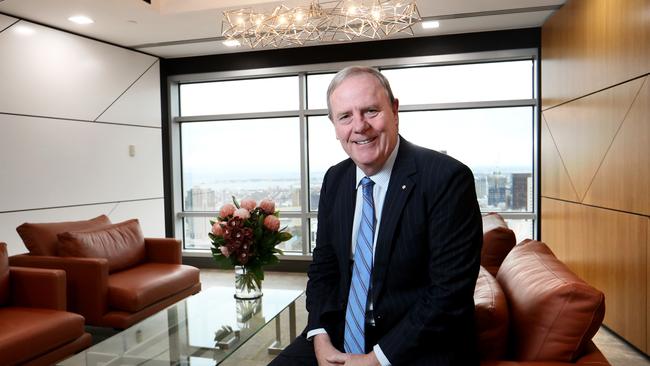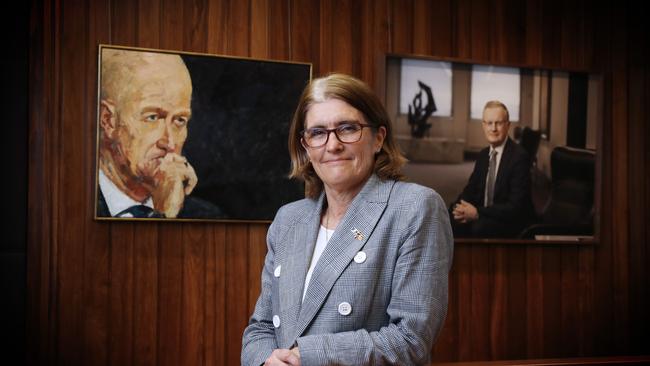RBA review runs risk of undermining monetary policy

These measures were the forward guidance (no increase in the cash rate until 2024) and the bond-buying program. It had never used these types of measures before and it was going into uncharted territory. But its guidance was woefully wrong.
We are still in 2023 and there have been 12 rate rises. The bond-buying program designed to get a yield of 0.1 per cent out to April 2024 failed. And all those 2024 bonds bought by the Reserve Bank are showing substantial losses – in fact, losses sufficient to wipe out the bank’s equity.
But this failure was not a result of the current operative arrangements. This failure was not the fault of the statute or the agreement between the governor and the treasurer (Statement on the Conduct of Monetary Policy), and not the fault of the composition of the board (two internal members and seven external members).
This was a failure of judgment and execution.
The governor and the board got it wrong. In defence of the board, it was largely copying other central banks, particularly the US Federal Reserve. In July last year, the government announced a review of Australia’s monetary policy arrangements. Once the review was established, it was an inquiry in search of a recommendation.
It could have found that the institutional arrangements were sound, that the bank had failed to execute its charter in the short term, but the arrangements had served Australia well across more than two decades. Importantly, it could have concluded there was no reason to leap into a new system that was untested and uncertain. That was the effect of evidence I gave to the review. Unfortunately, the Canadian member of the inquiry was not present when I gave that evidence.
The review has recommended that in place of the current board, there should be two boards with a new one – the monetary policy board – having responsibility for monetary policy.
On this board there would still be two internal members and seven external members. The difference is that this board, is supposed to house “experts”.
These experts would engage with the RBA staff and be able to commission analysis from them. They would give public speeches to outline the thinking of the board and discuss its decisions.
These members would have a great deal more latitude than a minister (who is bound by cabinet solidarity) to disagree with collective decisions.
They would get a lot more latitude than a normal director of a public company.
Whether the public would be better informed by differing opinions from these various experts is another matter.
It is widely expected that when the government goes hunting for these experts those with the time and inclination to engage will include a fair contingent from academe. As a result, we now have a long queue of academic economists supporting the proposed restructure and auditioning for possible appointment.
Mostly academic economists were all-in for unconventional monetary policy. Mostly they wanted more of it, not less. I think it quite unlikely that these sorts of experts would have helped the bank avoid the mistakes of 2020-22.
And what is going to happen if the policy of the MPB leads to the devaluation of reserves (as it did)?

The balance sheet is presumably the domain of the management board. Who prevails? When one board becomes two, there will be all sorts of jurisdictional questions to be resolved.
I think one of the mistakes we have made in recent years (as indeed has much of the Western world) is we have asked monetary policy to do too much. Monetary policy can do some things, such as restrain inflation to a target, but even then it is a blunt instrument and it works on time lags.
Can monetary policy deal with climate change? I don’t think so. So many of the things that affect that do not respond to interest rates.
Can it fix housing affordability? Not if affordability is caused by migration quotas, tax arrangements, zoning laws and the like.
Can monetary policy make up for fiscal failure? Monetary policy is one lever in an economy, not the only lever. We should ask it to do what it can, not more. And we should ask the same of all the other decision-making bodies: the federal government, the states, the competition regulators, the labour regulators and the like.
Complicating the current arrangements, as the RBA recommends, runs the risk of less focus and less accountability from the bank in the area where it really should be held responsible.
Peter Costello was federal treasurer from 1996 to 2007.






There is no doubt that when the Reserve Bank of Australia engaged in unconventional monetary policy in response to the Covid-19 pandemic it made a hash of things.